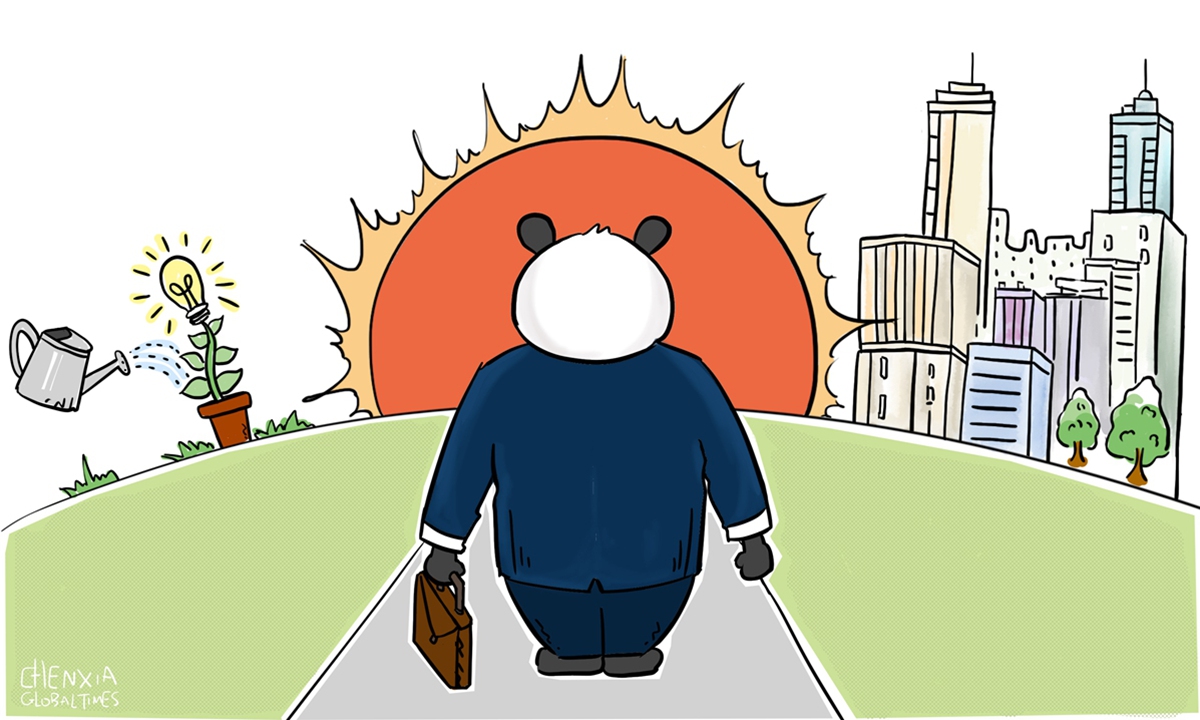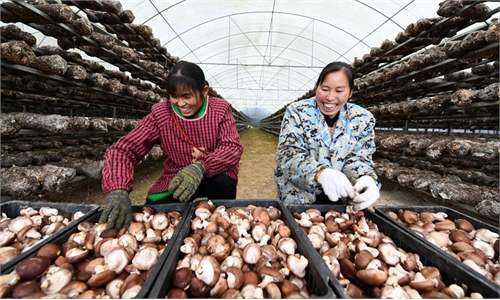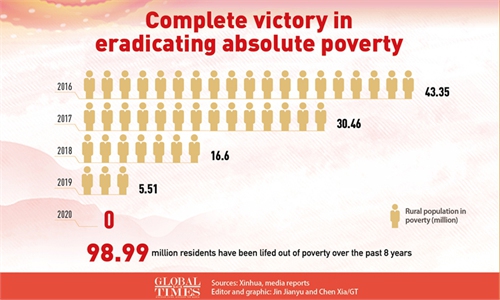
China's bright future Illustration: Chen Xia/GT
How should China, that is increasingly getting stronger, view the world and handle relations with outsiders? Some Westerners hope China can put itself in a submissive position and behave as humbly as it once did in the past, while there are also voices in the West hyping China has begun to act aggressively and arrogantly on the international stage. The reality is, however, China has long sought to stand on equal footing with other countries, when it no longer needs to look up to the rest of the world, it will not look down upon them, either.Chinese President Xi Jinping said on Saturday that before young Chinese, including those born in the 1970s, 1980s, 1990s and 2000s went out to see the world, China was able to view the world with a mindset of equality, so they are not as 'provincial' as older generations. Xi made the remarks when he joined national political advisors from education, medical and health sectors in a joint group meeting. His words have aroused resonance from many Chinese people.
China has been able to view the world with a mind-set of equality. This means Chinese people have become more confident in their country. They no longer simply believe everything in the West is better than China, nor will they look down upon other countries or impose China's will on them.
Over the past more than 70 years since the establishment of the People's Republic of China, China has been actively integrating into the world. It leapfrogged to become the world's second-largest economy from a weak and poor country. China has been advancing by leaps and bounds in areas such as the construction of social civilization, the improvement of governance system, and scientific and technological development. China's per capita GDP has exceeded $10,000 for two consecutive years. The country has gained a complete victory in eliminating absolute poverty. Given these accomplishments, no wonder Chinese people have become increasingly proud of their country.
The superiority of the Chinese system has been underlined in the past 70 years of development, serving as the fundamental guarantee for the country's success in various fields. The COVID-19 pandemic in particular has shed light on China's institutional advantages, while exposing governance loopholes of the US and other Western countries. China has tamed the virus successfully, but the pandemic has been considered the "Chernobyl moment" of the West. Many Western countries have been mired in a quagmire that their economy is shrinking and people's health and lives are hard to guarantee. In view of the sharp comparison between China and the West, it's no exaggeration to say that the Chinese society's political confidence has gotten an unprecedented boost.
Today's China has grown into a giant. The Chinese people have increasing confidence in the path and system that China has insisted on and deals with the rest of the world in an increasingly confident but equal manner. But the West, which is accustomed to China's submissiveness, cannot accept to treat China equally. It cannot correctly face up to China's rise. The West overlooks China's intention for peaceful development, harboring misgivings and suspicions over how China will use its growing strength.
The history of Western countries' rise has repeatedly seen countries seek hegemony after becoming strong. Some Westerners worry China is bound to follow this path. But this logic does not apply to China. China was once a victim of colonialism and now still suffers from hegemony. It spent decades seeking an equal footing with other countries, and it will never seek hegemony and inflict what it suffers on others.
China has been on an equal footing with the rest of the world. The West is bound to face a more confident and dignified China in the world in the future. It is hoped that the West could adapt itself to facing a growing China, and won't misjudge or deliberately twist China's development intentions.




